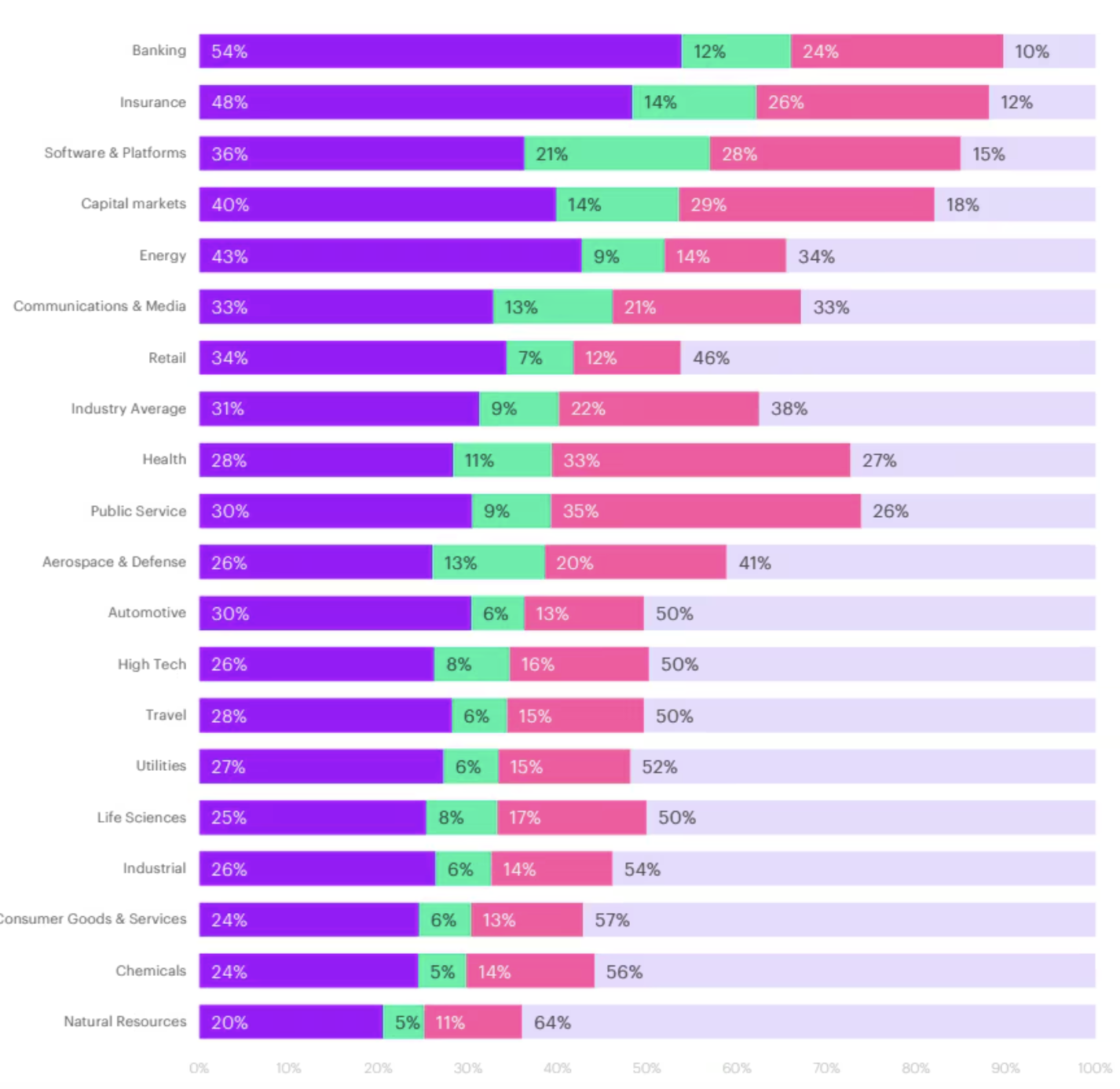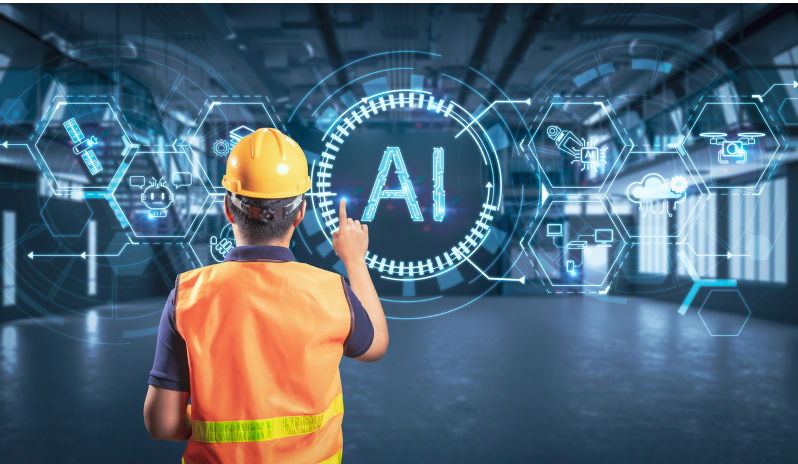The end of jobs?
August 7, 2025
By the 2040s, half to three-quarters of human society may be out of work, replaced by AI and sleepless robots.
Life for most people will consist of an endless round of entertainment, sport, eating, consuming, copulating and taking recreational drugs.
Like the battery chickens of yore, humans will inhabit vast “people farms” consisting of small, boxlike high-rise apartments, once known as cities. Their sole purpose in life will be consumption and their sole product the river of cash that makes oligarchs ever richer and more in control of society. The activities, needs and demands of these battery humans will be closely gauged by unsleeping electronic surveillance.
Dystopia? Or paradise? But heading our way with unstoppable momentum – at least, according to the latest prognostications from IT giant Microsoft, which thinks AI is going to gobble up at least 40 basic human job categories such as:
Computer and data-entry operators, interpreters and translators, writers and authors, historians, passenger attendants, sales and customer service reps, office workers, machine tool operators, telecoms engineers, ticket agents, clerks, secretaries, announcers, radio DJs, dredge operators, bridge and lock operators, water treatment operators, foundry workers, rail-track layers, maintenance workers, pile driver operators, floor sanders, hospital orderlies, boat operators, loggers, librarians and science teachers.
To that one might add lawyers, doctors, journalists, bankers, actors, planners, pilots, financial analysts, travel agents, book-keepers and many other professions whose work depends on a stock of rapidly-outdated or limited knowledge. AI can tap vast data — every disease, every legal case, for example — with a speed and thoroughness no human professional can match.
Automated factories and warehouses already run round the clock, with fewer human workers than ever. Mines and farms are increasingly operated by robots and drones. Almost any machine from an airliner to an oil tanker and a forklift to a taxi can be controlled by robot intelligence that never sleeps, complains or takes a break.
Even diehard sectors like the military are replacing soldiers with drones, robot killers, cyber warfare and other forms of AI, as the Ukraine-Russia conflict amply demonstrates. The traditional meatgrinder is being replaced with far less costly — in blood and treasure — technological warfare.
So all this isn’t science fiction any longer. It’s science reality.
It is true that advances in AI are creating some new, highly specialised, jobs. But not nearly enough to replace the millions they will displace. And this new work in machine learning and generative AI is far too technical and specialised to absorb the mass of unwanted, unqualified and unskilled workers. Foreshadowing its own prophecies, Microsoft itself has already laid off 15,000 workers in roles it deems easily replaceable with AI.

Figure 1. Percentage of various industries where human jobs are likely to be replaced by AI. Purple = % total automation, green/pink = partial automation, blue = low automation. Source: WEF
Of course, new technology has always supplanted old. Railroads replaced canal barges and horses. Gas lamps replaced candles. Backhoes replaced human ditch diggers. Farmers replaced hunter-gatherers.
And it is on this last point we should pause. The shift from hunting to farming, 5000 to 10,000 years ago, also brought about a complete shift in how people saw work. A good hunter-gatherer can subsist well and provide for his family on 30 hours a week – but when farming was first invented the workload almost doubled to 60 or more hours a week of backbreaking labour to sow and reap crops, husband livestock, process food and clothing. In this long, hard and dreary labour, the modern concept of work and the “work ethic” were born – along with a jealous resentment for the easy-going, knowledge-rich hunter-gatherers.
Religion was also born – accompanied by the (totally erroneous) belief that if you didn’t put in the hours of hard labour, the gods would not reward you with a harvest. You wouldn’t deserve it.
So the modern world grew up, believing it had to slave its guts out to justify its place on the planet and, when the industrial age arrived, this was a belief that suited the mill-owners and factory managers down to the ground. It justified their grinding of the poor. Only the rise of trade unions in the 19th century restored some balance.
So here we are, a society that believes in the necessity for hard work, confronting a revolution where the very idea of “work” may be largely abolished. What are we to do, when one of the main belief pillars of our societal temple is shattered?
Of course, some people would prefer not to work at all – and they will adapt to the new world with ease. However, the majority are going to find their deepest values and self-image challenged by the shift from (often largely pointless) labour to >100% leisure and recreation. For some, the guilt will be enormous.
The shift will not come overnight – though some professions may vanish quite quickly as the AI gets better at duplicating what they do. It will probably be progressive. The World Economic Forum, for instance, thinks the working week will contract from around 40 to 24 hours as AI takes over all or a part of most jobs. Some industries will automate even faster.
But there is a missing element in such predictions. How the hell will people survive, with half a job or no job? And, more cogently, how will billionaires survive with half the customers or fewer? Where is the circulating income which constitutes our world economy to come from?
One of the most obvious changes is that a large shift will take place in employment out of the manual, making and task-oriented professions and into the ideas, entertainment, sports and human care professions. This is the so-called “ideas economy”, based on products of the human mind and heart rather than raw materials.
So some people will keep on working, but in less physically demanding roles. And, again, this will suit many. But there will still be billions without a job of any kind. How are they to subsist? And continue to contribute to the consumer economy? This is where ideas like a Universal Basic Income come into play. Give everyone in society a subsistence income from government and let them supplement it with whatever work they can find.
The biggest losers from the AI job genocide are not families – they are billionaires, the people who need billions of eager consumers: the infamous “trickle up” effect. They will (eventually) back an UBI because otherwise they will lose most of their incomes! There will be too few citizens left who can afford to buy their products or use their services. Thus, an UBI will become another subsidy to the megarich – and sooner or later they will have to pay tax in order to sustain it!
All this presupposes the world in which we live will continue on its merry way, which is increasingly unlikely. Civilisational collapse, driven by the 10 mega-threats, is looming as a far more probable direction – and then AI will be among the least of our concerns. But it is still an evolution worth pondering and, if possible, anticipating with sensible precautions.
How ironic that one of the founding gurus of the IT/AI revolution should have been named Jobs. His successors will more appropriately be known as Nojobs.
The views expressed in this article may or may not reflect those of Pearls and Irritations.

